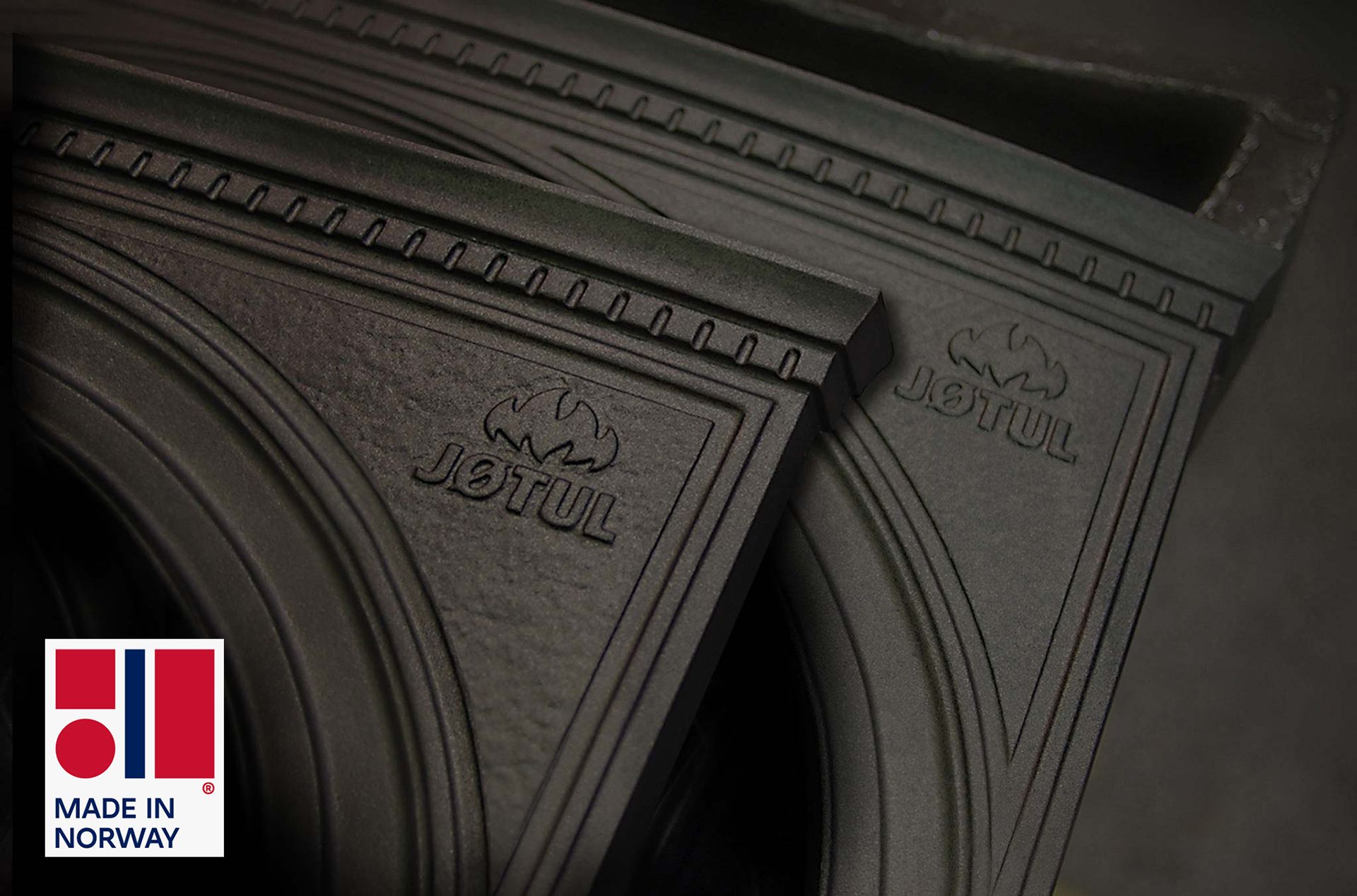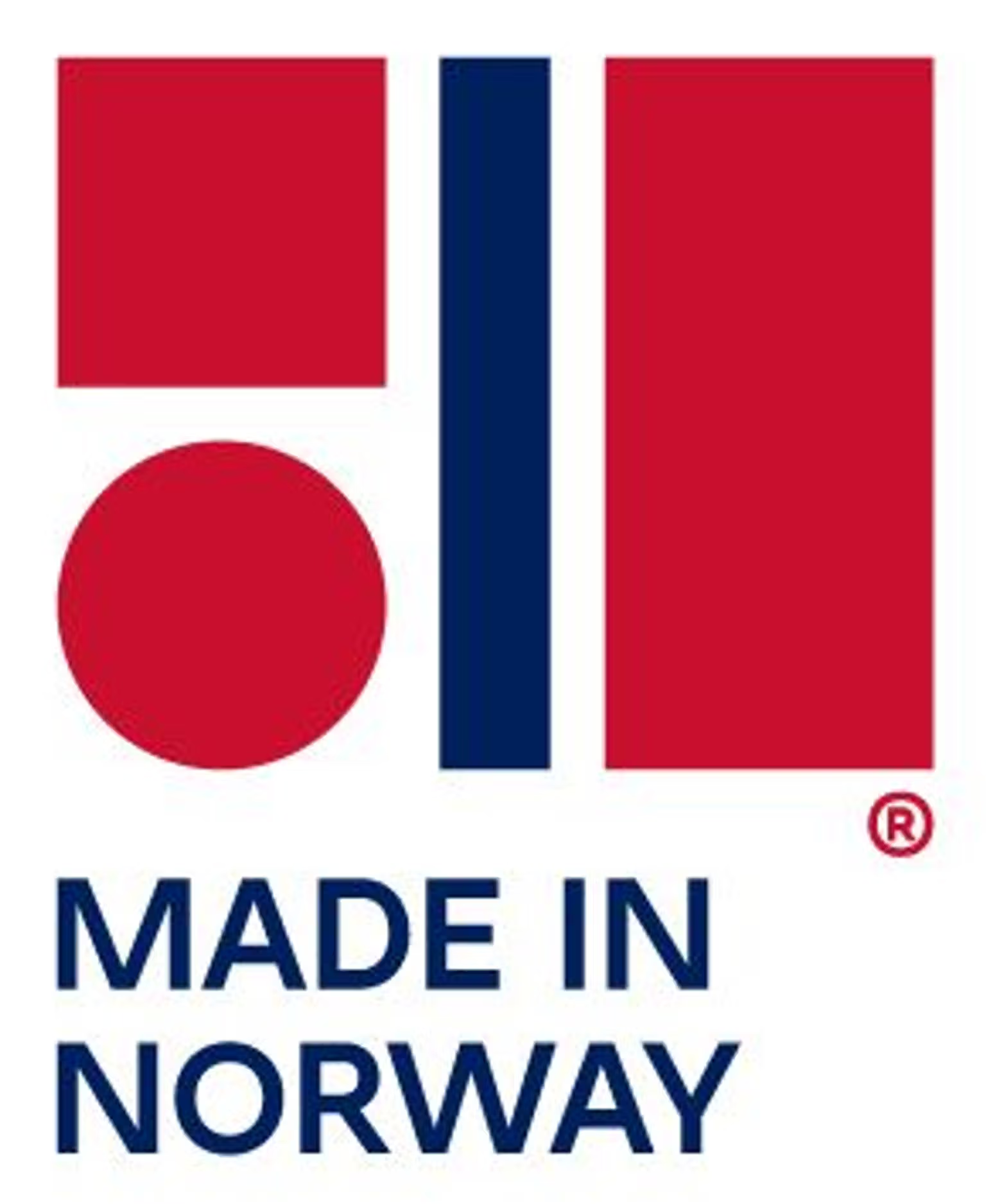
Jøtul cast iron stoves: Made in Norway
Published 23 Oct 2024 (updated 29 Oct 2025) · 3 min read
Jøtul is highlighting over 170 years of tradition in cast iron stoves
Jøtul has a long and proud history of producing cast iron stoves and fireplaces dating back to 1853.
Cast iron is an exceptionally well-suited material for products that must withstand high temperatures and rapid temperature changes.
Over the years, Norwegian tradition and solid craftsmanship have been key in making Jøtul’s products the natural choice for customers worldwide.
“Made in Norway gives us a unique opportunity to strengthen our brand, appeal to quality and sustainability-conscious customers, and strengthen our position in a competitive international market.”
Kristin Schubert Frithjofsen, Brand & Marketing Manager at Jøtul
Jøtul is highlighting over 170 years of tradition in cast iron stoves
Jøtul has a long and proud history of producing cast iron stoves and fireplaces dating back to 1853. Over the years, solid Norwegian craftsmanship and tradition have been key in making Jøtul’s products the natural choice for customers worldwide. This heritage is further emphasised by the prestigious Made in Norway origin label.
Cast iron is an exceptionally well-suited material for products that must withstand high temperatures and rapid temperature changes, making Jøtul’s products both functional and durable.
%20Jøtul.jpg?auto=format&w=1920&q=75)
Motivation for using the Made in Norway label
The awarding of the Made in Norway label will enable Jøtul to strengthen the credibility of, and signal the quality of, its brand – both nationally and internationally.
Jøtul recognises that the credibility of Norwegian-made stoves is high, and is aware that several companies use Norwegian origin in their communication without the products necessarily being made in Norway.
For Jøtul, with its strong roots in Norwegian cultural heritage, the Made in Norway label represents an opportunity to transmit its core values:
- Norwegian heritage
- Cast iron durability
- Timeless design
- Heating efficiency
The importance of origin in Jøtul’s market
Jøtul has a presence in 43 markets around the world and has already experienced that Norwegian origin is a door opener in a global context. With the Made in Norway label, the company wishes to strengthen its connection to Norway as a brand.
Kristin Schubert Frithjofsen, Brand & Marketing Manager at Jøtul, identifies potentials associated with the Made in Norway label:
“The origin label can enhance our reputation by highlighting our responsibility related to production. For example, all steel at our melting plant in Kråkerøy in Fredrikstad is 100 per cent recyclable material from Stene Stål Gjenvinning.”
In addition to strengthening its international appeal and position as a leading Norwegian export company, Jøtul hopes that the Made in Norway label will also help to increase pride within the company and ensure stable jobs well into the future.
Jøtul is aware of the challenges associated with the labelling scheme, such as competition from similar schemes and stricter requirements for documentation and traceability of products. However, the company views these challenges as an opportunity for further improvement and differentiation in the market.

Incorporating the label
Jøtul will use the Made in Norway label to promote the company's history and the Norwegian origin of its products, both now and in the future. As a manufacturer, the company seeks to bolster its social responsibility by contributing to a healthier climate and the green transition. Jøtul plans to use Made in Norway in its marketing and communication and is exploring opportunities for future product labelling.

